ECO-Volunteering in the 21st centure
воскресенье, 18 ноября 2018 г.
Local Eco-Volunteering Programmes
Having read a lot of information about global eco-volunteering programmes, we decided to learn about local ones.
In Kolomna there are several such programmes. The most popular is "Dobrye Kryshechki".
The purpose of the project is to attract children and adults to the joint solution of environmental and social problems. With the help of the project, we show that it is possible to take care of another person without material means, and the usual “garbage” is a valuable and necessary resource.
HOW IT WORKS
1. you do not throw away the plastic caps, but hand them over to collection points
2. we sort the caps by color and give them to the Kolomna factory, which uses caps as recyclables for the production of new products
3. the factory makes new products from them
4. and sends money to the charity fund "Volunteers to help orphans" http://www.otkazniki.ru/
5. the fund organizes assistance to a specific child.
The project exists in different cities of Russia.
The Project started in Kolomna in March 2018.
It all started with a wonderful teacher who attracted children to the collection. Then, at the monthly promotions for RNO, it was decided to assemble the caps separately.
Currently 134 kg are collected.
We really hope that tomorrow there will be more of us, and we will be able to help the children more actively.
In Kolomna there are several such programmes. The most popular is "Dobrye Kryshechki".
The purpose of the project is to attract children and adults to the joint solution of environmental and social problems. With the help of the project, we show that it is possible to take care of another person without material means, and the usual “garbage” is a valuable and necessary resource.
HOW IT WORKS
1. you do not throw away the plastic caps, but hand them over to collection points
2. we sort the caps by color and give them to the Kolomna factory, which uses caps as recyclables for the production of new products
3. the factory makes new products from them
4. and sends money to the charity fund "Volunteers to help orphans" http://www.otkazniki.ru/
5. the fund organizes assistance to a specific child.
The project exists in different cities of Russia.
The Project started in Kolomna in March 2018.
It all started with a wonderful teacher who attracted children to the collection. Then, at the monthly promotions for RNO, it was decided to assemble the caps separately.
Currently 134 kg are collected.
We really hope that tomorrow there will be more of us, and we will be able to help the children more actively.
National Eco-Volunteering Programmes
In this section are going to tell you about several eco-voluntering programmes in Russia.

2. Contribute greatly to local eco-tourism efforts in Russia.
3. Immerse in the magnificent landscape of Siberia.
4. Make a positive difference to the environment by embarking on this wonderful journey.
5. Meet and interact with the locals and other volunteers.
It is necessary to emphasize that volunteering in Russia differs from foreign experience in terms of most preferable types of activities. For example, in English-speaking countries ecological projects and work with handy-kept children response for the largest part of volunteering, whereas in Russia the first place belongs to the safety on the roads and Green initiative. Due to that fact it seems reasonable to increase the public awareness of the problem and stimulate people to participate in volunteering in order to support the children in need.
Siberia Conservation Volunteer Programme
Program Description
Become a conservation volunteer in Russia and join our teams to help build and preserve the eco-trails of Lake Baikal in Siberia. Join for 2 weeks over the summer and experience life in the beautiful wilderness of the area, while being part of important conservation work. You will partake on hikes and trail building in various locations of Russian natural reserves, and in your work, you will actively assist the region with alternatives to logging, industrial activities and unsustainable tourism, further developing the programme’s mission of bringing eco-tourism to the area.
Highlights
1. Gain valuable experience in environmental work and conservation pursuits.2. Contribute greatly to local eco-tourism efforts in Russia.
3. Immerse in the magnificent landscape of Siberia.
4. Make a positive difference to the environment by embarking on this wonderful journey.
5. Meet and interact with the locals and other volunteers.
Qualifications
Volunteers needs to minimum 18 years, independent and ready to engage on hard physical work in the outdoors.Volunteer Types
- Building/construction projects
- Conservation
- Eco-tourism
- Environment
What`s Included
Included in the costs are food (3 meals/day), water supplies, all necessary tools and equipment (i.e. tents, construction tools, campfire utensils such as dishes, pots and other gear, first aid kits etc.), local transport between project sites.International Eco-volunteering programmes
Here we would like to draw your attention to the best international eco-volunteer programmes.
Top 9 Eco Volunteer Programs:
- Eco-Agriculture in Dharamsala, India
- Forest or Marine Conservation in Madagascar
- Coast and Waterway Conservation in New Zealand
- Eco-Agriculture Conservation in Costa Rica
- Eco-Agriculture Conservation in Guatemala
- Agriculture Volunteering in the Atlas Mountains
- Jungle Conservation in Peru
- Environmental Education in Bali
- Environmental Volunteering in the Philippines
1. Eco-Agriculture in India - Dharamsala

The Eco-Agriculture project in Dharamsala enables volunteers to work at the heart of small communities, to provide hands on support by means of sustainable farming initiatives. As India develops as a country, it has become increasingly difficult for communities to gain access to fresh produce and maintain their own means of sustainable production.
Volunteer work is based at the grass-roots level and benefits are there for families and the community at large. Typical daily tasks include:
- Working on small plots of shared land
- Assisting private kitchens to cultivate edible crops
- Leading community awareness activities on the importance of sustainable agriculture
- Facilitating training on crop productivity
The program is available year round and you can take part on the project on the first and third Monday of each month, with a minimum duration of 2 weeks. During the weekends, volunteers have free time to relax or take the opportunity to explore Dharamsala or other areas in India, such as Amritsar, McLeod Ganj, or Andretta.
2. Marine or Forest Conservation in Madagascar

The Marine Conservation and Forest Conservation projects in Madagascar bring together a mix of observational and hands-on volunteer work that is aimed at preserving wildlife and their natural environments. The Marine Conservation project allows for more variety in volunteer tasks, as you can participate in observational work, community teaching and beach clean-ups. On the other hand, the Forest Conservation project is primarily focused on monitoring and analyzing the wildlife native to Madagascar.
Given the geographic location and environment, it pays to come prepared. A mix of hiking gear and beach attire are a must have on the program. Madagascar is an adventure in itself, so you won’t need to venture far when all the exploring can be done from your accommodations doorstep. You can begin the Marine Conservation or Forest Conservation projects on the first and third Monday of any month, and be sure to apply well in advance as these are popular projects for international volunteers. Learn more about what it’s like volunteering in Madagascar.
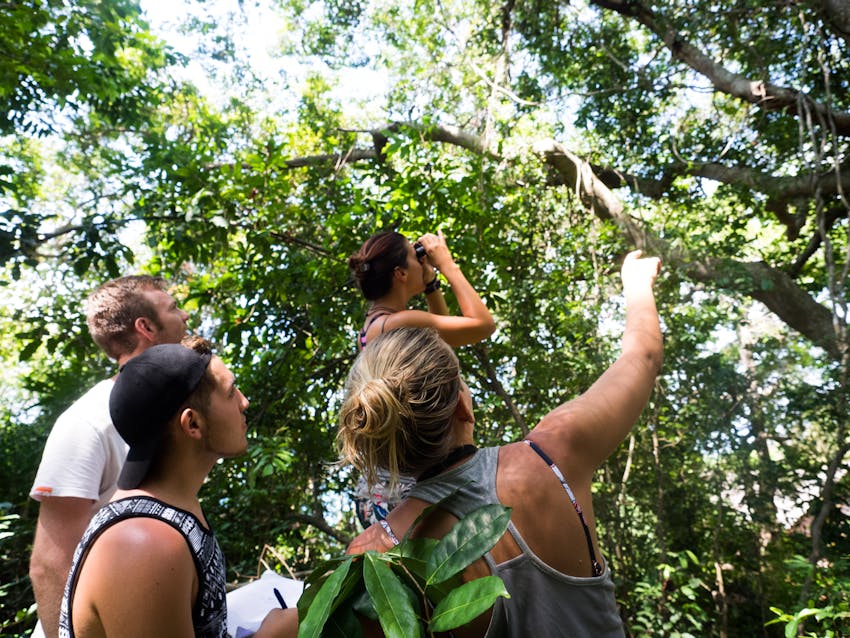
3. Coast and Waterway Conservation in New Zealand

The eco volunteer projects in New Zealand take a hands-on approach to enriching New Zealand’s natural environment. The Coast and Waterway Conservation project offers a high degree of flexibility in volunteer work depending on the needs at the time of your placement. If you have a particular set of skills, this can also be harnessed by the local team who will identify how you can best support the goals of your project.
New Zealand has varying weather conditions so it’s essential to pack clothes for wet and fine weather. Depending on how far you’re willing to travel, New Zealand is a thrill-seeker’s paradise with a swag of inexpensive options. You can start volunteering in New Zealand on the first and third Monday of each month and the program is well suited to solo volunteers, as well as friends and family traveling together. Learn more about volunteering in New Zealand.
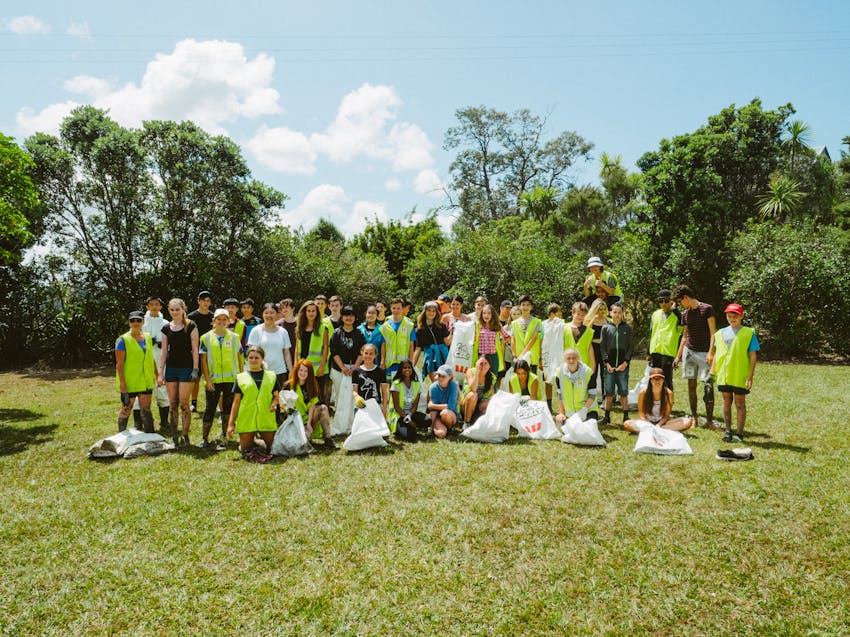
4. Eco-Agriculture Conservation in Costa Rica

On the Eco-Agriculture Conservation project in Costa Rica, you’ll be working within a small coffee farming community, supporting and learning about the coffee production process first-hand from local families. Typical tasks include coffee growing and production, reforestation and various agriculture efforts. There is always ample opportunity to work longer hours on the farm, or to support varying levels of the coffee production.
Given the location of the project, it’s key that you come prepared for warm and cool weather, and pack appropriate attire for farm work. Depending on your exact placement, you will have the opportunity to take part on adventure activities, such as zip lining and whitewater rafting. The project is perfect for an eco volunteer looking to gain a mix of environmental and community-based work, and you can start the project on any given Monday. Find out more about eco volunteering in Costa Rica.
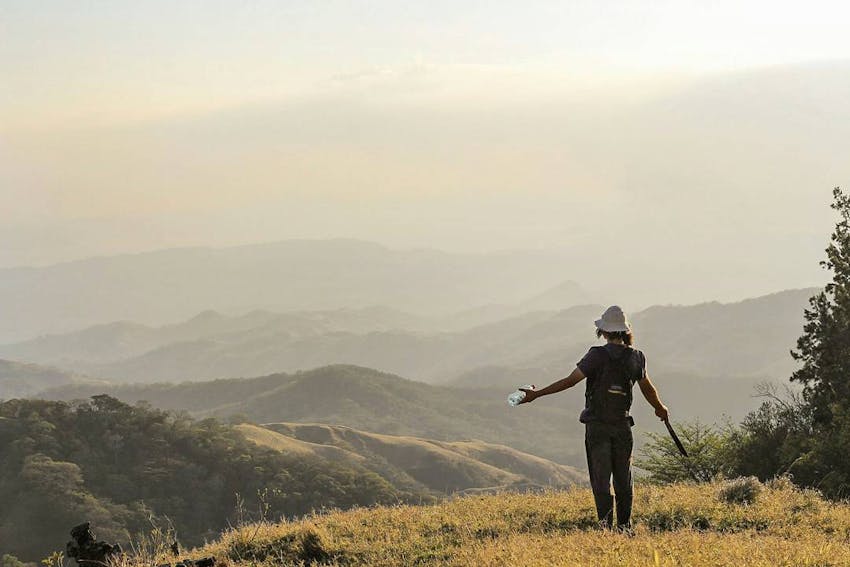
5. Eco Agriculture Conservation in Guatemala

If you’re looking for environmental volunteer work in Central America, an Eco-Agriculture project is also available in Guatemala. Focusing on coffee farm-based production work, property maintenance and community construction, there is no shortage of day-to-day work and there’s always a task to be completed on this project. Volunteers have to come prepared to show initiative with the ultimate goal of supporting sustainable agriculture and economic development within a small farming community in Guatemala.
Based in the Guatemalan highlands, you will need to be prepared for all conditions, so don’t forget to bring warm clothing, as well as clothes that you don’t mind getting dirty. From ancient Incan monuments to sun-clad beaches, Guatemala offers weekend experiences for all types of volunteer travelers. This project is available year-round and you can begin on any Monday of the month. When planning your volunteer trip, keep in mind that December through to March are the main coffee harvesting months. Discover more about the volunteering in Guatemala.
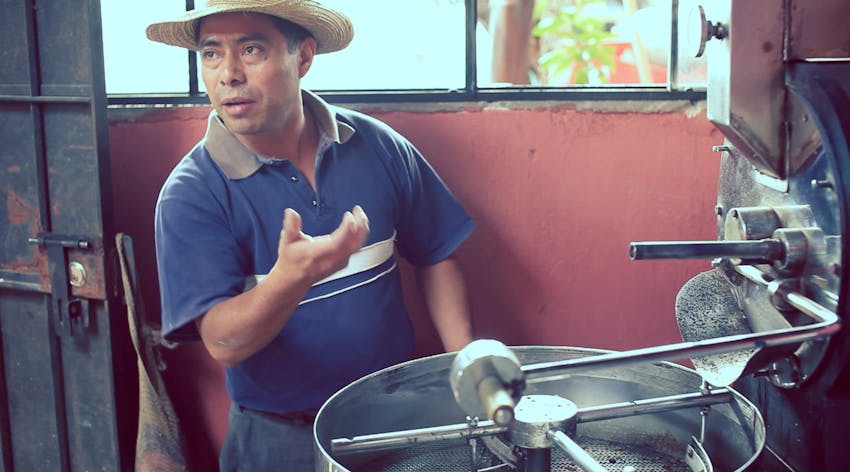
6. Agriculture Volunteering in the Atlas Mountains

Based in the Atlas Mountains of Morocco, the Agriculture project has farming as the key focus and you must be prepared to get your hands dirty as you’ll be assisting local farmers with tasks such as ploughing, seeding, weeding, and harvesting. While supporting the farmers and local community to improve their farming output, there is also the opportunity to teach English within the community if time permits.
With a mix of demanding daily tasks, it’s important to bring attire that will withstand the conditions and that you don’t mind getting dirty. During your weekends, don’t be afraid to take the road less traveled in Morocco. With such a diverse landscape, you can visit everything from picturesque beaches to breathtaking deserts. You can start the project on the first and third Monday on any month, and with limited spaces available, it’s important to plan ahead. Learn more about the volunteer opportunities in Morocco.
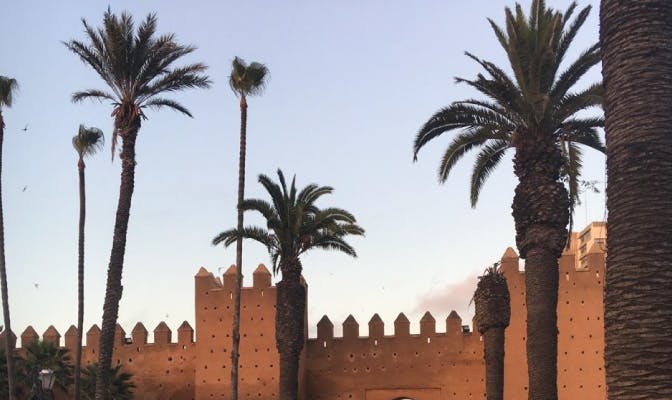
7. Jungle Conservation in Peru

The Jungle Conservation project in Peru takes a more observational approach, so while the body may not be overly taxed, the mind will need to remain sharp. Depending on the field conditions, volunteer work typically consists of wildlife monitoring, reforestation and research with the ultimate goal of preserving your beautiful surroundings.
Working in the jungle requires you to be prepared for a range of conditions, so it’s important to pack adequate clothing for wet and bush-like environments. No one would believe you if you said that you traveled to Cusco and didn’t see Machu Picchu, combine this with vast jungle and ancient sites, and Peru is a time warp waiting to be discovered. The Jungle Conservation project in Peru begins every Monday, and with three different placements sites, there is capacity to host large groups of volunteers on this project. Discover more about volunteering in Peru.
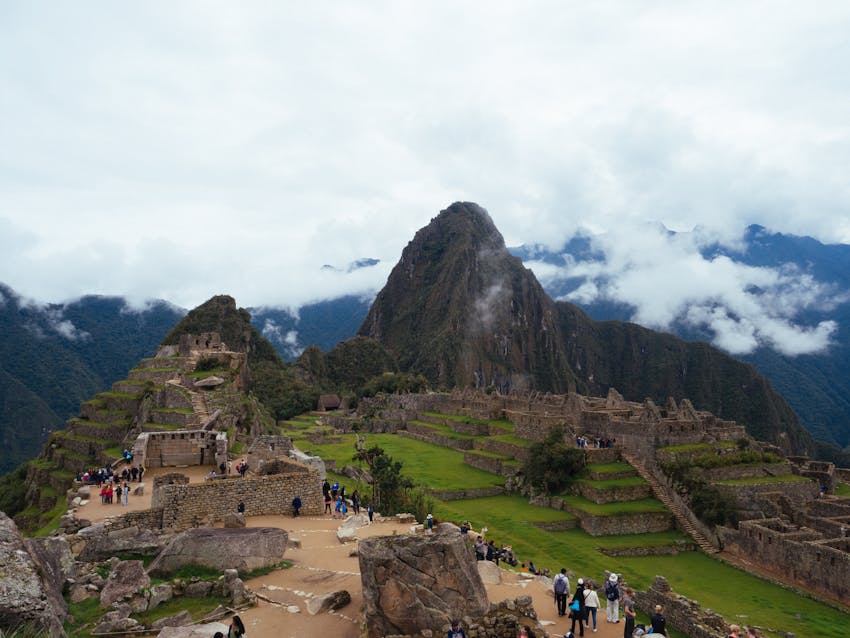
8. Environmental Education in Bali

The Environmental Education project in Bali adopts a teaching-based approach, although there is also scope to get out there and get your hands dirty. In Bali, you’ll be working to educate the local community and schools on manageable campaigns to support the protection of the local environment. This can include activities such as recycling and beach clean-ups, however, you have the creative freedom to design your own campaign and thinking outside the square is encouraged.
Think about the type of campaign you would be interested in organizing as this can impact your packing requirements for Bali. The schools you’ll be working with are often under-resourced, so you would need to bring your own materials in some cases to support your campaign. Typically, suitable active wear and trainers are fine. With an adventurous spirit, Bali has no shortage of adventures to fill your weekends, from cycling through traditional villages to spending the weekend on exotic islands. The Environmental Education project in Bali is available each Monday, and has great volunteer capacity, making it perfect for family volunteering and volunteer groups. Find out more about eco volunteering in Bali.
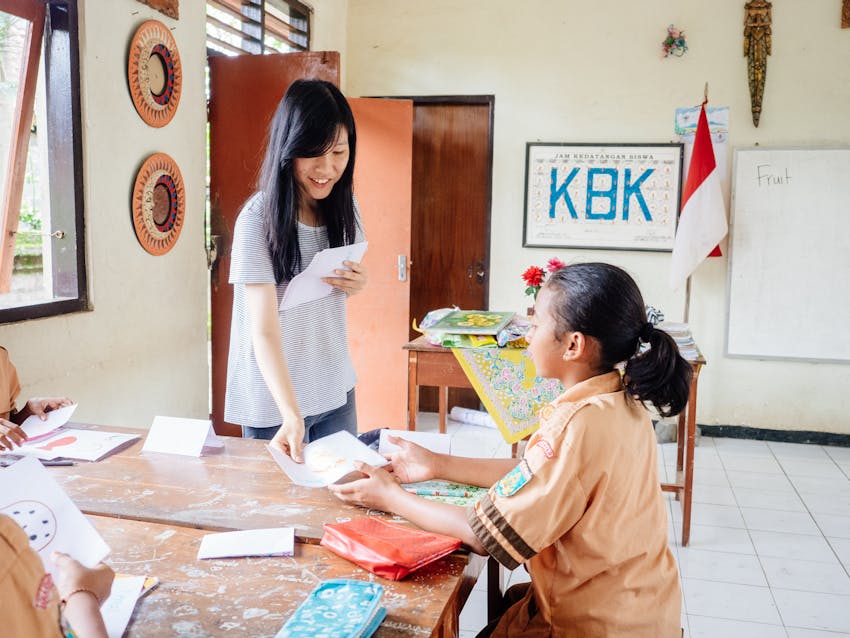
9. Environmental Volunteering in the Philippines

The Environmental project in the Philippines focuses on mangrove rehabilitation and mangrove replanting, as well as education campaigns within local schools to raise awareness around the importance of the mangrove rehabilitation, and the impact of litter on the environment. The work you will be completing will not be overly strenuous, however, the more enthusiastic you are, the more work that can be done. Mangroves provide habitat for nursing fish and other marine life, as well as many native birds, including the Palawan fruit bat. Mangroves are not just positive for nature, they also serve as coastal barriers, slowing storm surge and reducing beach erosion.
With the volunteer work spent amongst the mangroves, it’s essential to have adequate clothes to deal with the conditions. Given the geographic location of the project, it’s a water wonderland with waterfalls, rivers and beaches. Providing plenty of options for long weekends. The project starts every Monday and is available year round with large capacity on the program. See more about volunteering in the Philippines.
What is Eco-Volunteering?
Before speaking about special eco-volunteering programmes it is necessary to understand what eco-volunteering is.
As wikipedia says, eco-volunteering includes environmental monitoring (e.g. wildlife); ecological restoration such as revegetation and weed removal, and educating others about the natural environment.
Like other types of volunteering, environmental volunteers are motivated by a range of different factors, some of which are altruistic and others are for personal interest and development. Recognised motivations are:
1) making a contribution to community
2) promoting social interaction
3) personal development
4) learning about the natural environment
5) a general ethic of care for the environment
6) attachment to a particular place.
Environmental volunteering has also been associated with helping those with mental health conditions, as physical activity and fresh air benefits some sufferers.
How the project started
To begin with, we'd like to say that Eco-volunteering is a very interesting movement as we live in the 21st centure, the era of information technologies and space speeds. Nowadays we constantly hear about global ecological problems. And the question is: Can we help our environment? And if yes, how can we do it?
We discussed the problem of the project and came to the conclusion that our project work is going to include the following stages:
1. What is Eco-Volunteering?
On this stage we are planning to find different definitions of Eco-Volunteering and analyze them.
2. International/National Eco-Volunteering programmes.
Here we need to search for information about effective global eco-volunteering programmes and their work.
3. Local Eco-Volunteering programmes.
This stage is dedicated to eco-volunteering programmes in our town of Kolomna.
4. School Eco-Volunteering programmes.
Here we are going to tell you about our schools project connected with Eco-Volunteering.
We discussed the problem of the project and came to the conclusion that our project work is going to include the following stages:
1. What is Eco-Volunteering?
On this stage we are planning to find different definitions of Eco-Volunteering and analyze them.
2. International/National Eco-Volunteering programmes.
Here we need to search for information about effective global eco-volunteering programmes and their work.
3. Local Eco-Volunteering programmes.
This stage is dedicated to eco-volunteering programmes in our town of Kolomna.
4. School Eco-Volunteering programmes.
Here we are going to tell you about our schools project connected with Eco-Volunteering.
Our project motto is EVERYTHING IN OUR HANDS!
Подписаться на:
Сообщения (Atom)





